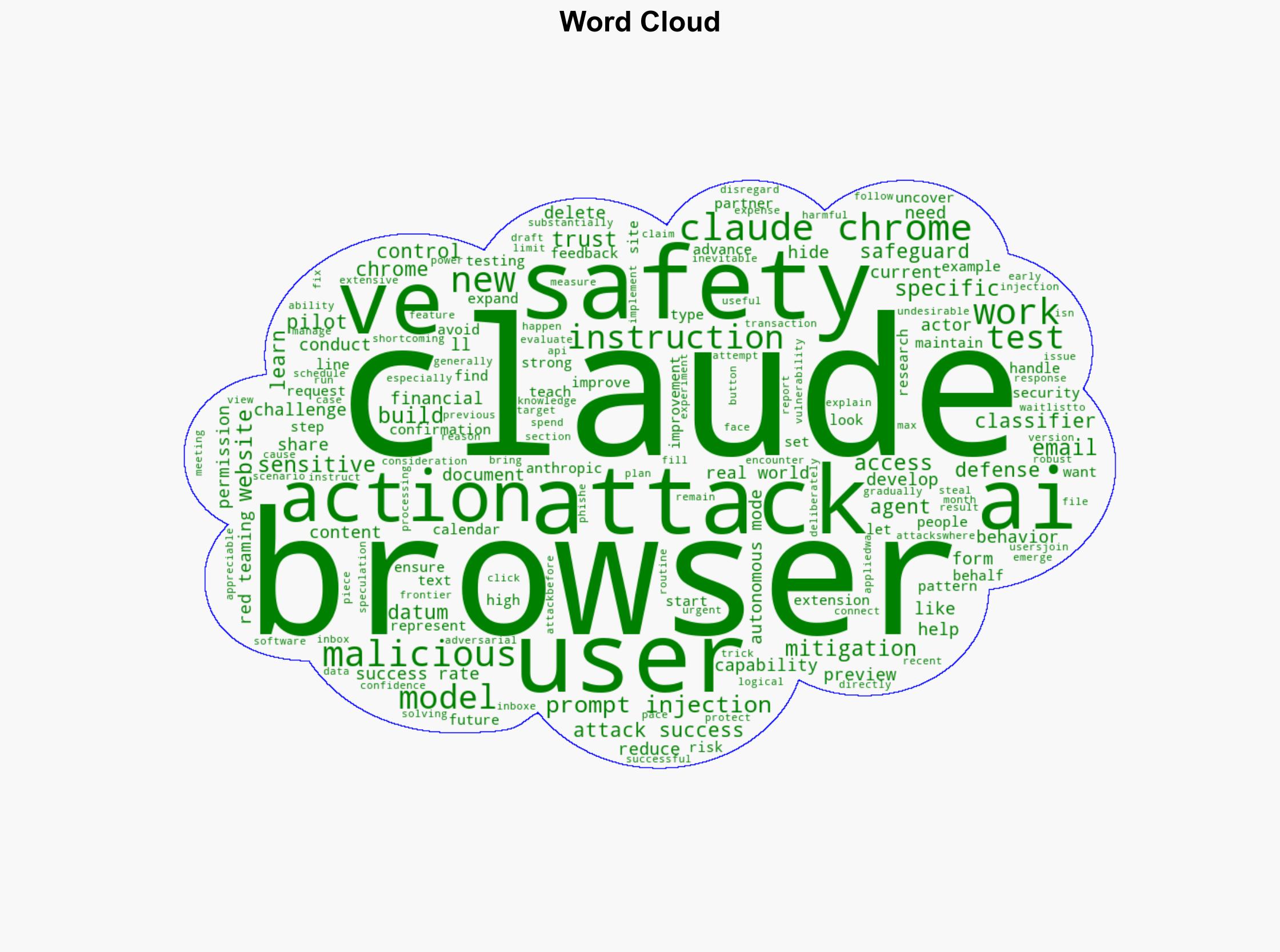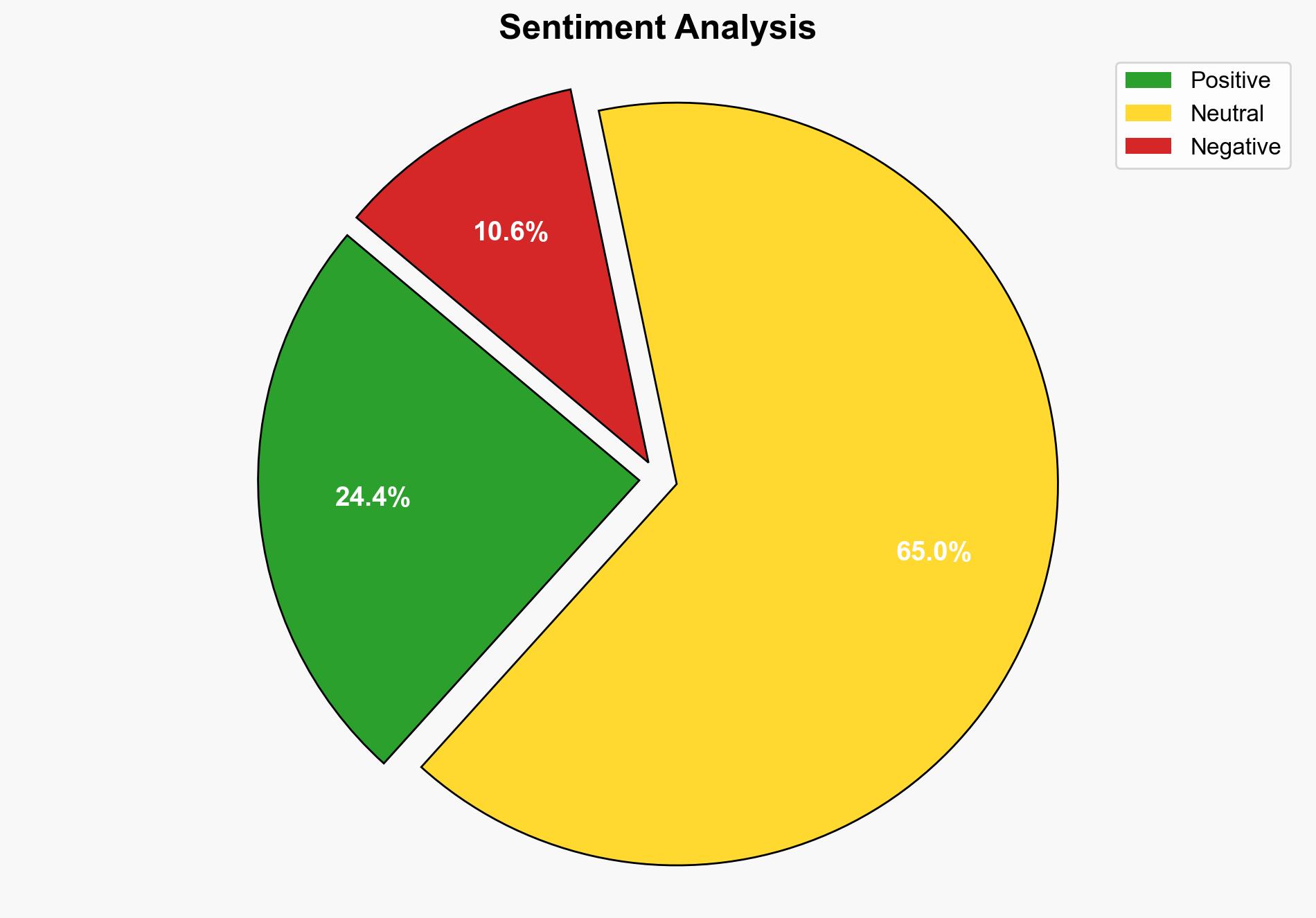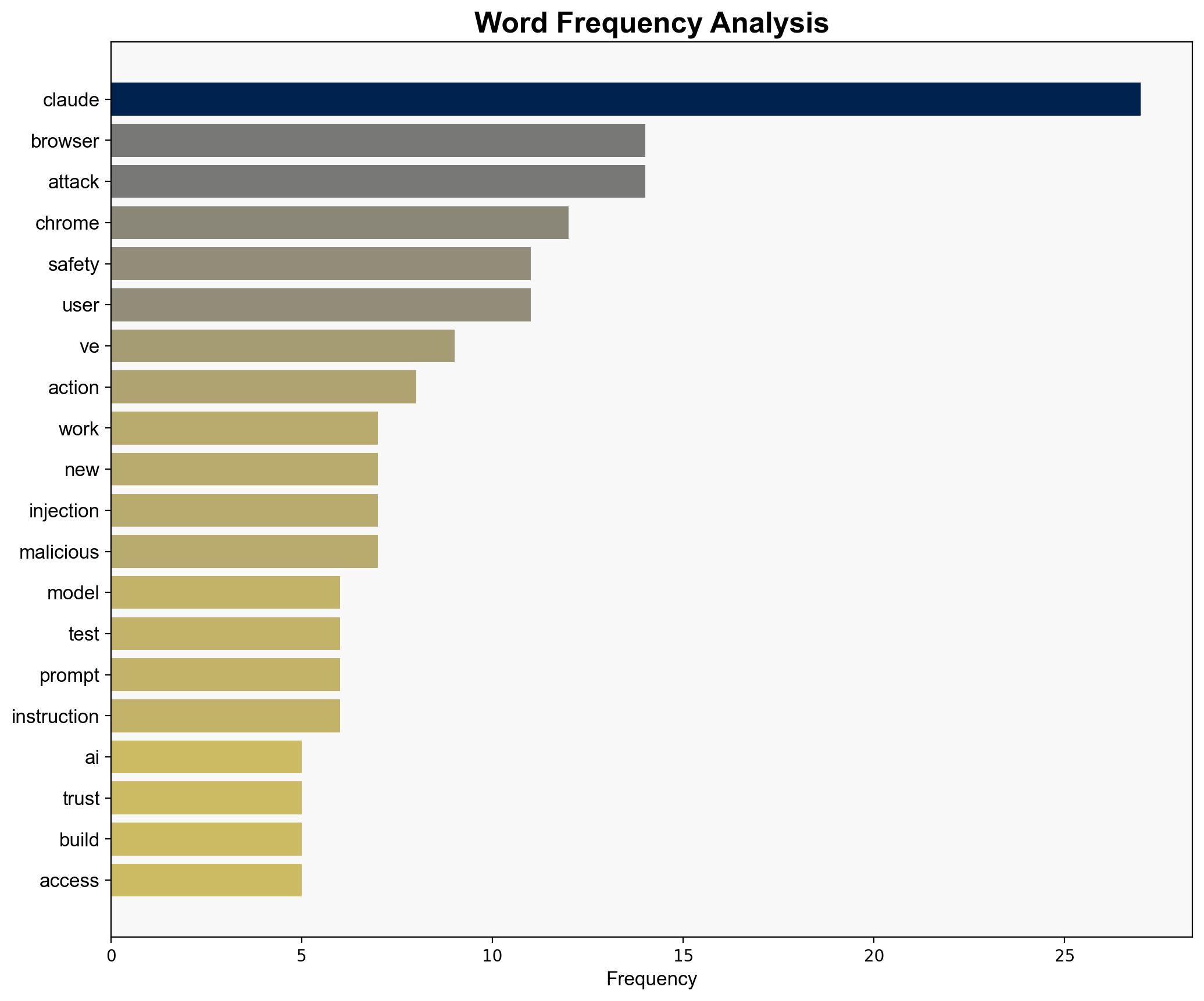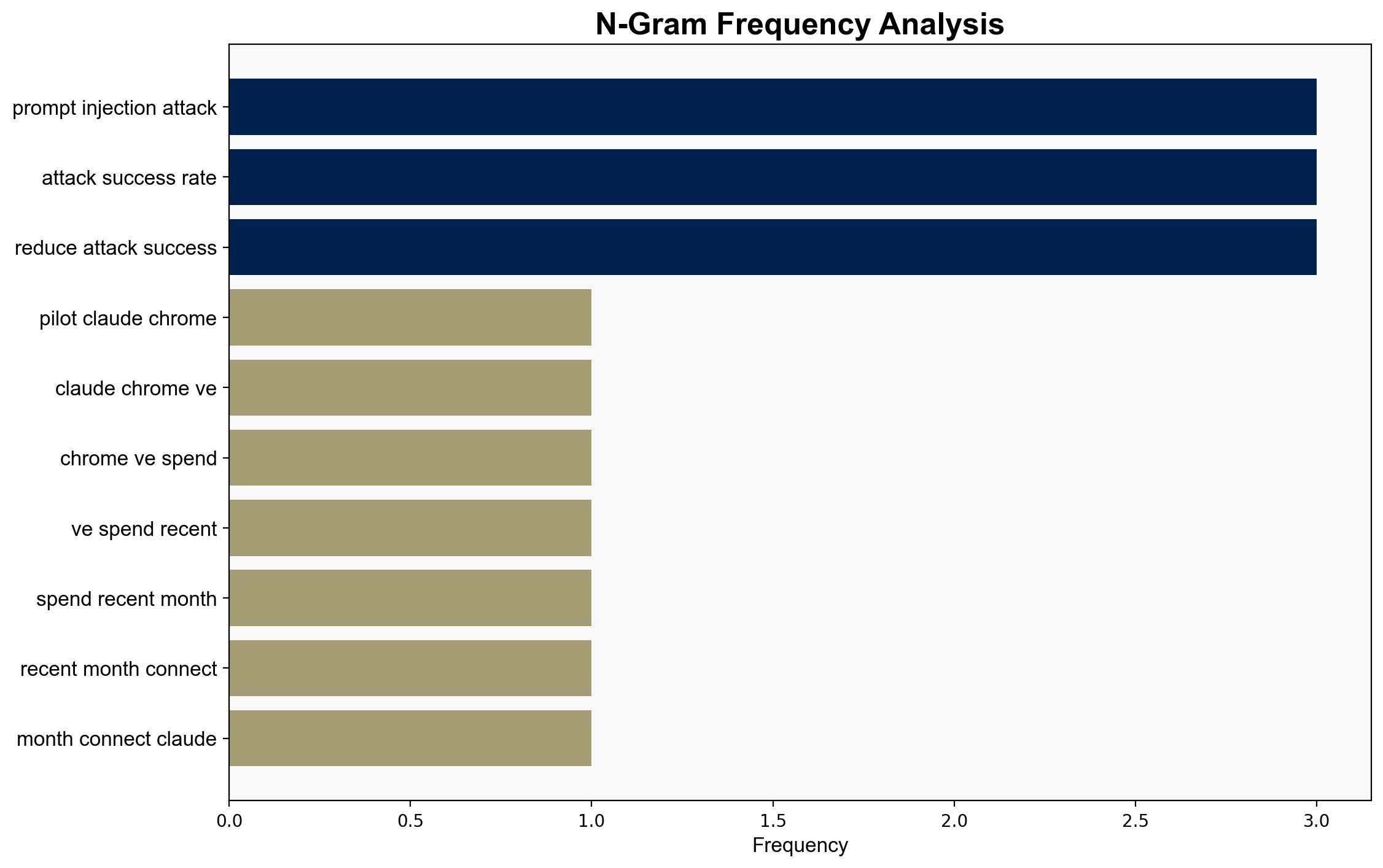Claude for Chrome – Anthropic.com
Published on: 2025-08-26
Intelligence Report: Claude for Chrome – Anthropic.com
1. BLUF (Bottom Line Up Front)
The most supported hypothesis is that Anthropic’s development of Claude for Chrome aims to integrate AI capabilities directly into web browsers, enhancing user experience while prioritizing safety and security. This initiative is driven by the need to address emerging cybersecurity threats, such as prompt injection attacks. Confidence level: Moderate. Recommended action: Monitor the development and deployment of browser-integrated AI technologies, focusing on their security implications and potential vulnerabilities.
2. Competing Hypotheses
1. **Hypothesis A**: Anthropic is primarily focused on advancing AI capabilities within browsers to improve user convenience and productivity, with security measures being a secondary consideration.
2. **Hypothesis B**: The primary goal of Anthropic’s Claude for Chrome is to address and mitigate cybersecurity threats associated with browser-based AI, with user convenience being a secondary benefit.
Using ACH 2.0, Hypothesis B is better supported due to the emphasis on safety challenges, adversarial testing, and the development of classifiers to detect suspicious activities, as highlighted in the source text.
3. Key Assumptions and Red Flags
– **Assumptions**:
– Anthropic has the technical capability to effectively mitigate emerging cybersecurity threats.
– Users will adopt browser-integrated AI despite potential privacy concerns.
– **Red Flags**:
– The effectiveness of current defenses against novel attack vectors remains uncertain.
– Potential over-reliance on user permissions and confirmations as a security measure.
– **Blind Spots**:
– The long-term implications of integrating AI into browsers on user privacy and data security are not fully explored.
4. Implications and Strategic Risks
– **Cybersecurity Risks**: The integration of AI into browsers could create new attack surfaces, increasing the risk of data breaches and unauthorized access.
– **Economic Implications**: Successful deployment could disrupt the software market by setting new standards for browser capabilities, impacting competitors.
– **Geopolitical Risks**: Adoption of such technology could influence global cybersecurity norms and regulations, potentially leading to international disputes over data privacy and AI governance.
5. Recommendations and Outlook
- Conduct continuous monitoring of Claude for Chrome’s deployment and its security measures.
- Engage with cybersecurity experts to assess potential vulnerabilities and develop robust countermeasures.
- Scenario Projections:
- Best Case: Claude for Chrome sets a new standard for secure browser-integrated AI, enhancing user trust and adoption.
- Worst Case: Security vulnerabilities lead to significant data breaches, undermining user trust and prompting regulatory scrutiny.
- Most Likely: Gradual adoption with ongoing security improvements and moderate market impact.
6. Key Individuals and Entities
– Anthropic (developer of Claude for Chrome)
7. Thematic Tags
national security threats, cybersecurity, AI integration, browser technology





